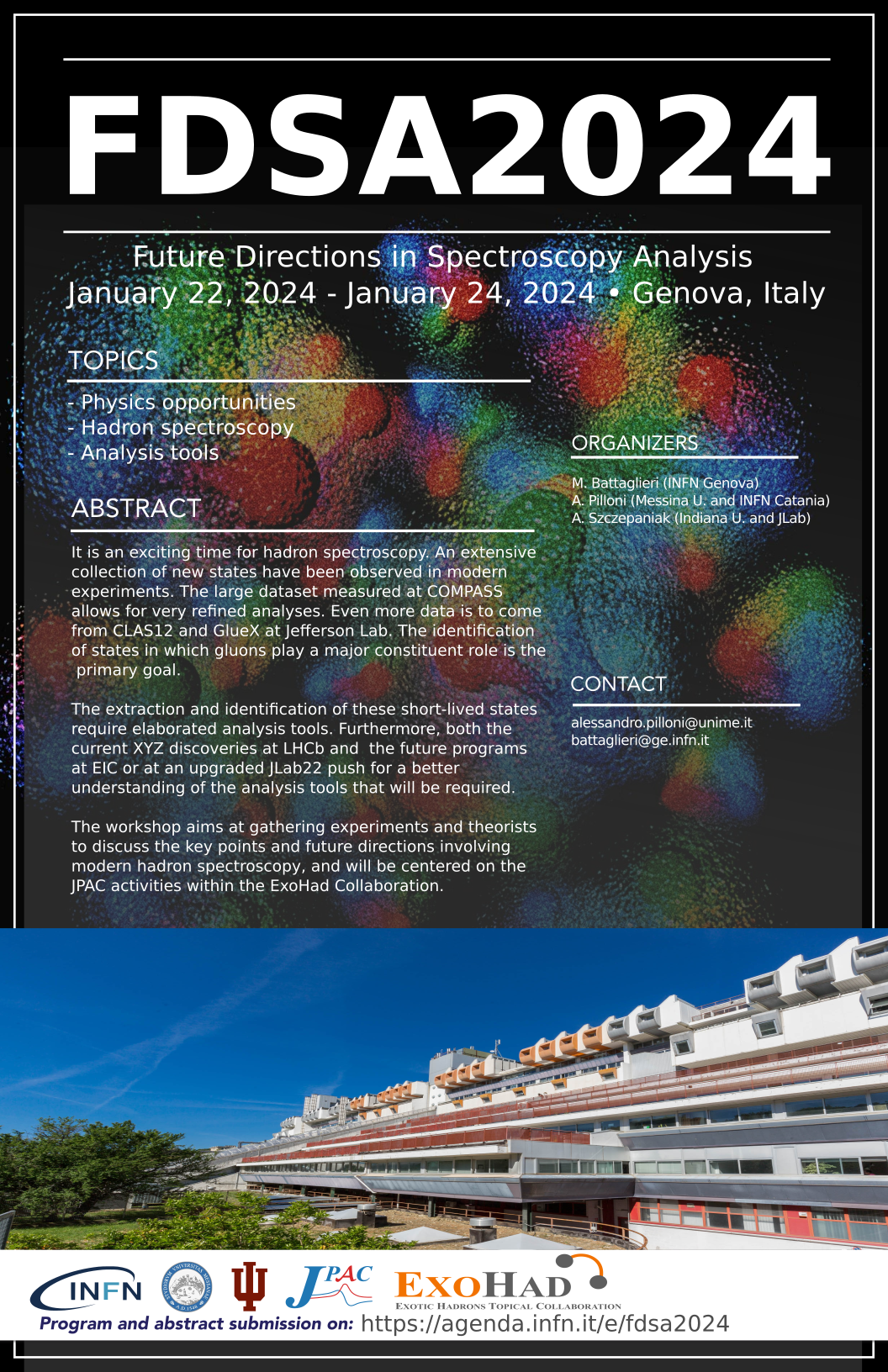5th Workshop on Future Directions in Spectroscopy Analysis (FDSA2024)
Aula 500
Dipartimento di Fisica, Università di Genova
It is an exciting time for hadron spectroscopy. An extensive collection of new states have been observed in modern experiments, ranging from the light sector up to heavy quarkonia. When combined with the unprecedented amount of events collected, these results enable us to access a new plethora of phenomena. The large dataset measured at COMPASS allows for very refined analyses. Even more, data is to come in the years ahead from CLAS12 and GlueX at Jefferson Lab. The identification of states predicted by QCD, in which gluons play a major constituent role is the goal of the JLab experiments. This goal is shared by the lattice QCD effort, which has produced sound results involving non-ordinary hadrons.
An understanding of the dynamics that confines constituents are paramount to conceive the formation of the many unstable hadrons we observe. The extraction and identification of these short-lived states require elaborated analysis tools. Furthermore, both the future XYZ spectroscopy program at EIC and the possible 24 GeV JLab upgrade push for a better understanding of the amplitude analysis tools that will be required. At this workshop, recent progress on spectroscopy, involving non-ordinary hadrons in particular will be reviewed. The workshop aims at gathering experiment, phenomenology, and lattice QCD together to discuss the key points and future directions involving modern hadron spectroscopy, and will be centered on the JPAC activities within the ExoHad Collaboration.
This workshop is intended to be interactive, with ample time for discussions. We would like to encourage all participants to contribute their ideas to the various topics that will be presented.
